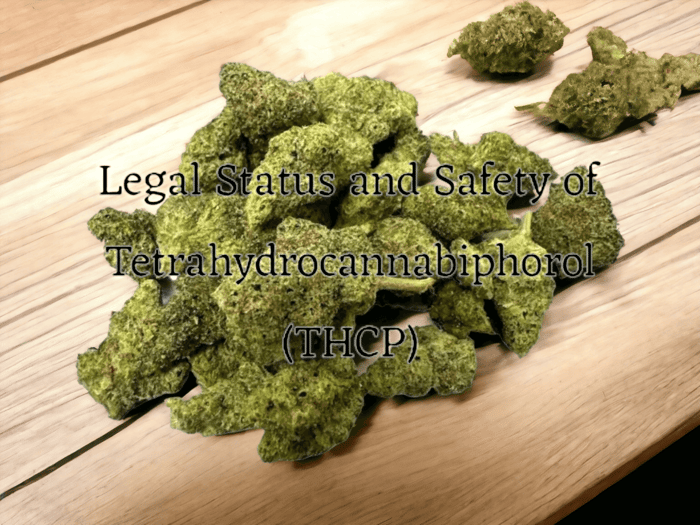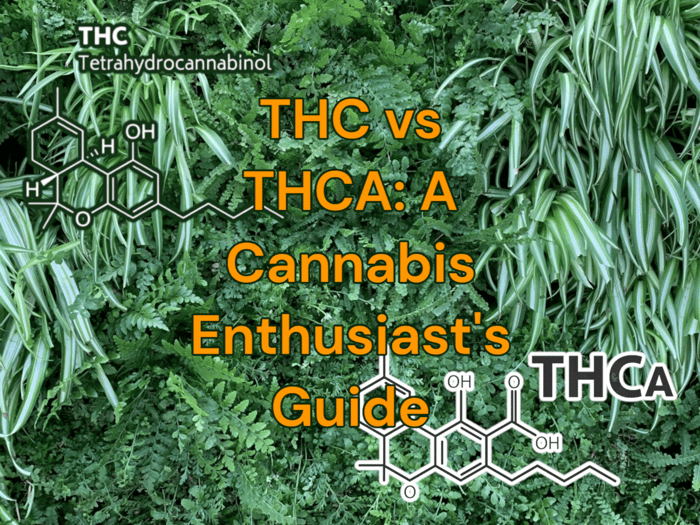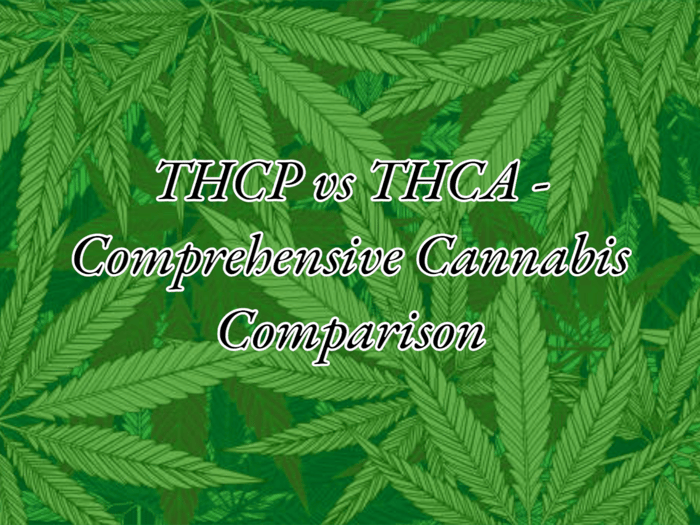
Decoding the Legality and Safety of Tetrahydrocannabiphorol (THCP)
Spotlight on Tetrahydrocannabiphorol (THCP)
Discovered in the Cannabis sativa plant, THCP or Tetrahydrocannabiphorol is a novel phytocannabinoid with significant legal implications. It contributes to the plant's psychoactive qualities alongside its more well-known counterpart, Delta-9-tetrahydrocannabinol (THC).
The Significance of Deciphering THCP’s Legal and Safety Measurements
As THCP gains prominence, understanding becomes essential. This knowledge can inform consumers and regulatory bodies, guiding decisions about its use and regulation.
What is THCP?
Tetrahydrocannabiphorol (THCP) is a novel cannabinoid, a type of chemical compound naturally found in the cannabis plant. It is related to, but distinct from, other cannabinoids such as tetrahydrocannabinol (THC) and cannabidiol (CBD). Like its more famous cousins, it has been found to interact with the body's endocannabinoid system, but its unique structure may confer distinctive effects.
Comprehensive Definition of THCP
THCP is a phytocannabinoid, which means it is synthesized by plants. The "tetrahydro" prefix refers to the molecule's four hydrogen atoms, while "cannabiphorol" denotes a structure common to certain other cannabinoids. Its full scientific name is "7-tetrahydrocannabiphorol". Unlike THC, which has only five alkyl side chains, THCP has seven, which potentially allows for a greater number of interactions within the body's endocannabinoid system.
Brief History and Discovery Process of THCP
THCP was first discovered in 2019 by Italian scientists who were investigating the chemical profiles of different cannabis strains. Using advanced techniques including mass spectrometry and nuclear magnetic resonance, they identified THCP as a previously unknown cannabinoid. This discovery raised a multitude of questions about the potential effects of THCP and its role within the cannabis plant's already complex chemical ecology.
Comparison of THCP with other cannabinoids like THC and CBD
THCP shares the core cannabinoid structure with THC and CBD, but the additional alkyl chains in its chemical structure might make it significantly stronger. While THC is famous for its psychoactive properties, and CBD for its therapeutic effects, the full range of effects associated with THCP is still under investigation. Early research suggests that THCP might have a stronger binding affinity for CB1 receptors in the body's endocannabinoid system, which would theoretically result in more potent effects than THC. However, actual effects can vary widely among individual users due to factors such tolerance, metabolic rate, and genetic makeup.
Common Uses and Reported Effects of Using THCP
Given the recent nature of its discovery, the common uses and effects associated with THCP are still being explored. Research is ongoing to identify ways in which THCP might contribute to the overall effects of cannabis use, including its impact on mood, cognition, inflammation, pain, and other factors. Some users report similar effects to THC, including relaxation, euphoria, and altered sensory perception, but these observations are anecdotal and may not be representative of all users' experiences.
Legality of THCP
Tetrahydrocannabiphorol, or THCP, is a newly discovered compound related to THC found in Cannabis sativa. As a new substance, the legal status of THCP varies around the world, from country to country and even within different states in the US. Understanding these variations is key for those interested in THCP's potential medical applications, as well as for users and sellers.
THCP's Status in the USA
Federal Law Status
In the United States, legal decisions regarding cannabis and its derivatives fall under both federal and state laws, and these can sometimes conflict. At the federal level, cannabis is classified as a Schedule I drug under the Controlled Substances Act, implying it has no accepted medical use and a high potential for abuse. THCP, as a derivative of cannabis, is not expressly listed in the scope of this law. However, it may be considered a controlled substance due to its structural and pharmacological similarity to THC, a Schedule I drug.
Variations in State Laws
State laws on cannabis and its derivatives, including THCP, differ widely. Some states have fully legalized the recreational and medical use of cannabis, others only permitting medical use. A few still completely criminalize its use. The legality of THCP specifically is unclear in many states, as laws often do not reference this newly discovered compound specifically.
Legal Status in Other Major Regions/Countries
Europe
In Europe, regulations around cannabis and cannabinoids fluctuate extensively between countries. Some countries such as the Netherlands have a widely recognized tolerance policy toward cannabis use, while others have strict laws against it. The legal status of novel cannabinoids like THCP is often unclear and would likely be judged on a case-by-case basis.
Canada
Canada legalized the recreational use of cannabis nationwide in 2018. Its law includes not just the cannabis plant, but also its derivatives. Thus, it is likely that THCP, as a component of cannabis, is also legal in Canada. However, there has been no official legal clarification about THCP specifically.
Australia
The laws around cannabis use in Australia are complex, with different rules in different states. In general, the use of medical cannabis is legal with a prescription, while recreational use remains largely illegal. The legal status of THCP is uncertain and could be subject to individual state regulations.
Impact of International Treaties
The legality of THCP could also be impacted by international treaties. This includes the United Nations' Single Convention on Narcotic Drugs, which classifies cannabis and its resin as Schedule IV substances considered particularly illicit and dangerous. However, THCP isn't specifically mentioned in the treaty, leaving its status within such conventions vague.
Is THCP Safe?
The safety of cannabinoids like THCP largely depends on the perspective from which they are analyzed. The general consensus is that they hold potential therapeutic benefits, but their long-term effects on human health remain relatively unknown. Despite this, from a general standpoint, cannabinoids have been observed to have a good safety profile, with minimal risk when used responsibly and under the supervision of a healthcare professional.
Safety of THCP According to Studies
Research into the safety of THCP is still in its infancy. There is a relative deficit of substantial studies focusing on elucidating the potential risks and side effects of this particular cannabinoid.
Animal Studies
Animal studies serve as the backbone of early research into new substances. Logic dictates that if a substance displays adverse effects in animal models, it is likely to do the same in humans. As of yet, there are no large-scale THCP-specific animal studies available.
Preliminary Clinical Trials
Preliminary clinical trials serve as a follow-up to animal studies and the first step towards human trials. Given the recency of THCP's discovery, there are no published clinical trials that specifically focus on this cannabinoid. Further research is needed to conclusively establish the safety profile of THCP in humans.
Potential Side Effects of THC
Understanding the potential side effects or dangers of THC can shed some light on what to expect from its structural analog, THCP. Frequent side effects of THC consumption include dry mouth, increased heart rate, coordination problems, red eyes, slower reaction times, and mood alterations. In some cases, prolonged use can lead to mental health issues like paranoia and psychosis. It's important to note, however, that individual responses to THC can greatly vary, and the presence and severity of these side effects might differ from person to person.
Comparative Safety Considerations of THCP and Other Cannabinoids
THCP is relatively new to the scientific scene, and as such, much of its safety information relies on comparison with structurally similar cannabinoids, like THC. As THC is the psychoactive compound primarily responsible for the 'high' associated with cannabis use, there is speculation that THCP, with a similar structure but enhanced potency, might exhibit increased psychoactive effects, although this has not yet been scientifically verified.
As more research is conducted, the safety profile of THCP will be better defined in comparison to more commonly recognized cannabinoids like THC and CBD. Until then, caution should be exercised when approaching THCP, given that safety has yet to be thoroughly established.
Final Remarks: The Complexities of Understanding Tetrahydrocannabiphorol
Tetrahydrocannabiphorol (THCP), a novel phytocannabinoid derived from Cannabis sativa, has gained prominence due to its significantly higher affinity for CB1 and CB2 receptors compared to its close relative, THC. This article has highlighted the complex legality surrounding THC, examining its legal status globally and in the United States, where it remains a Schedule I substance under the Controlled Substances Act. Equally, the safety and toxicity profile of THCP has also been assessed, emphasising the paucity of research on its absorption, distribution, metabolism, and excretion in humans.
Reflections on the Current Legal Status and Safety Considerations
The current legal status of THCP is largely uncertain, with the substance occupying a grey area due to its recent identification. The legal landscape is convoluted, marked by rapidly changing regulations, different interpretations, and often, contradictory practices between countries and states. Its classification under the Controlled Substances Act remains unclear, exposing possible legal pitfalls for businesses and consumers alike. Safety concerns also persist, stemming primarily from a lack of comprehensive understanding of its toxicological profile. The risk of adverse effects, particularly with excessive or prolonged use, underscores the critical need for rigorous systematic studies.
Recommendations for the Future of THCP Research
An essential call to action is a comprehensive investigation into the pharmacokinetic and pharmacodynamic properties of THCP. In-depth studies benchmarked against well-documented cannabinoids can provide a better understanding of why THCP has a heightened affinity for cannabinoid receptors. Comparative studies on biological effects induced by THCP and THC could inform on differential potency and underlying mechanisms, key for regulatory decision-making. Lastly, long-term observational studies are necessary to elucidate the potential societal implications and public health impact of chronic THCP use.
Benefits of Comprehending Legality and Safety of Cannabinoids
Gaining a profound understanding of the legal complexities and safety considerations surrounding novel cannabinoids like THCP is essential. It sets the foundation for a standardized legal framework that caters to the high stakeholder interest, including scientists, policy-makers, industry, and users. Furthermore, it allows for an informed public dialogue based on facts rather than conjecture, paving the way for safe and responsible use. Moreover, apprehending the full therapeutic potential or risks of such substances facilitates the development of drugs that are safe, effective, and reliable.




